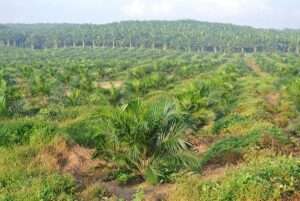LanzaTech and partners achieve technology breakthrough with production of palm oil substitute

Having successfully commercialised its technology to produce ethanol for SAF via the alcohol-to-Jet (ATJ) process, the team’s breakthrough expands LanzaTech’s capability for producing SAF via the Hydroprocessed Esters and Fatty Acids (HEFA) pathway.
This innovation offers a sustainable palm oil substitute, leveraging LanzaTech's versatile technology which is pivotal for decarbonization efforts across various sectors.
Collaboratively developed with the Fraunhofer Institute for Interfacial Engineering and Biotechnology IGB and the Mibelle Group, this palm oil alternative replicates essential functional properties needed in the cosmetics industry.
"This innovation is the result of our long-standing partnership with LanzaTech and a milestone for the cosmetics industry. Combined with the innovative strength of the Fraunhofer Institute, we are setting new standards for the entire industry and underlining our commitment to taking responsibility for the future of our planet while making supply chains more robust," said Peter Müller, CEO of the Mibelle Group.
"The Mibelle Group, as the original innovator behind this idea, has been instrumental in assembling the right partners and driving success, alongside the Fraunhofer Institute's outstanding innovators who have focused on developing and scaling this solution,” said Jennifer Holmgren, CEO of LanzaTech.
“This collaboration reflects how revolutionary ideas can generate wide-ranging impacts, from reducing reliance on deforestation-linked ingredients in cosmetics to enabling the production of sustainable aviation fuel, thereby creating change that extends beyond initial objectives.”













